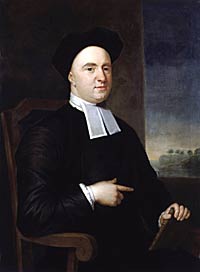Readings:
Psalm 119:89-96
Isaiah 6:6-10
Acts 13:38-44
John 3:11-16
Preface of a Saint (1)
[Common of a Theologian and Teacher]
[Common of a Pastor]
[For the Ministry II]
[For Education]
PRAYER (traditional language)
O God, by thy Holy Spirit thou givest to some the word of wisdom, to others the word of knowledge, and to others the word of faith: We praise thy Name for the gifts of grace manifested in thy servants George Berkeley and Joseph Butler, and we pray that thy Church may never be destitute of such gifts; through Jesus Christ our Lord, who with thee and the Holy Spirit liveth and reigneth, one God, for ever and ever. Amen.
PRAYER (contemporary language)
O God, by your Holy Spirit you give to some the word of wisdom, to others the word of knowledge, and to others the word of faith: We praise your Name for the gifts of grace manifested in your servants George Berkeley and Joseph Butler, and we pray that your Church may never be destitute of such gifts; through Jesus Christ our Lord, who with you and the Holy Spirit lives and reigns, one God, for ever and ever. Amen.
This commemoration, along with that of Joseph Butler, appears in A Great Cloud of Witnesses.
Return to Lectionary Home Page
Webmaster: Charles Wohlers
Last updated: 20 April 2019
GEORGE BERKELEY
BISHOP and THEOLOGIAN (1753)
 George
Berkeley (pronounced /'barkli/) (12 March 1685 – 14 January
1753), also known as Bishop Berkeley (Bishop of Cloyne), was an Anglo-Irish
philosopher whose primary achievement was the advancement of a theory
he called "immaterialism" (later referred to as "subjective
idealism" by others). This theory contends that individuals can only
know directly sensations and ideas of objects, not abstractions such as
"matter". The theory also contends that ideas are dependent
upon being perceived by minds for their very existence, a belief that
became immortalized in the dictum, "esse est percipi"
("to be is to be perceived"). His most widely-read works are
A Treatise
Concerning the Principles of Human Knowledge (1710) and Three
Dialogues between Hylas and Philonous (1713), in which the characters
Philonous and Hylas represent Berkeley himself and his older contemporary
John Locke. In 1734, he published The
Analyst, a critique of the foundations of infinitesimal calculus,
which was influential in the development of mathematics.
George
Berkeley (pronounced /'barkli/) (12 March 1685 – 14 January
1753), also known as Bishop Berkeley (Bishop of Cloyne), was an Anglo-Irish
philosopher whose primary achievement was the advancement of a theory
he called "immaterialism" (later referred to as "subjective
idealism" by others). This theory contends that individuals can only
know directly sensations and ideas of objects, not abstractions such as
"matter". The theory also contends that ideas are dependent
upon being perceived by minds for their very existence, a belief that
became immortalized in the dictum, "esse est percipi"
("to be is to be perceived"). His most widely-read works are
A Treatise
Concerning the Principles of Human Knowledge (1710) and Three
Dialogues between Hylas and Philonous (1713), in which the characters
Philonous and Hylas represent Berkeley himself and his older contemporary
John Locke. In 1734, he published The
Analyst, a critique of the foundations of infinitesimal calculus,
which was influential in the development of mathematics.
— more at Wikipedia